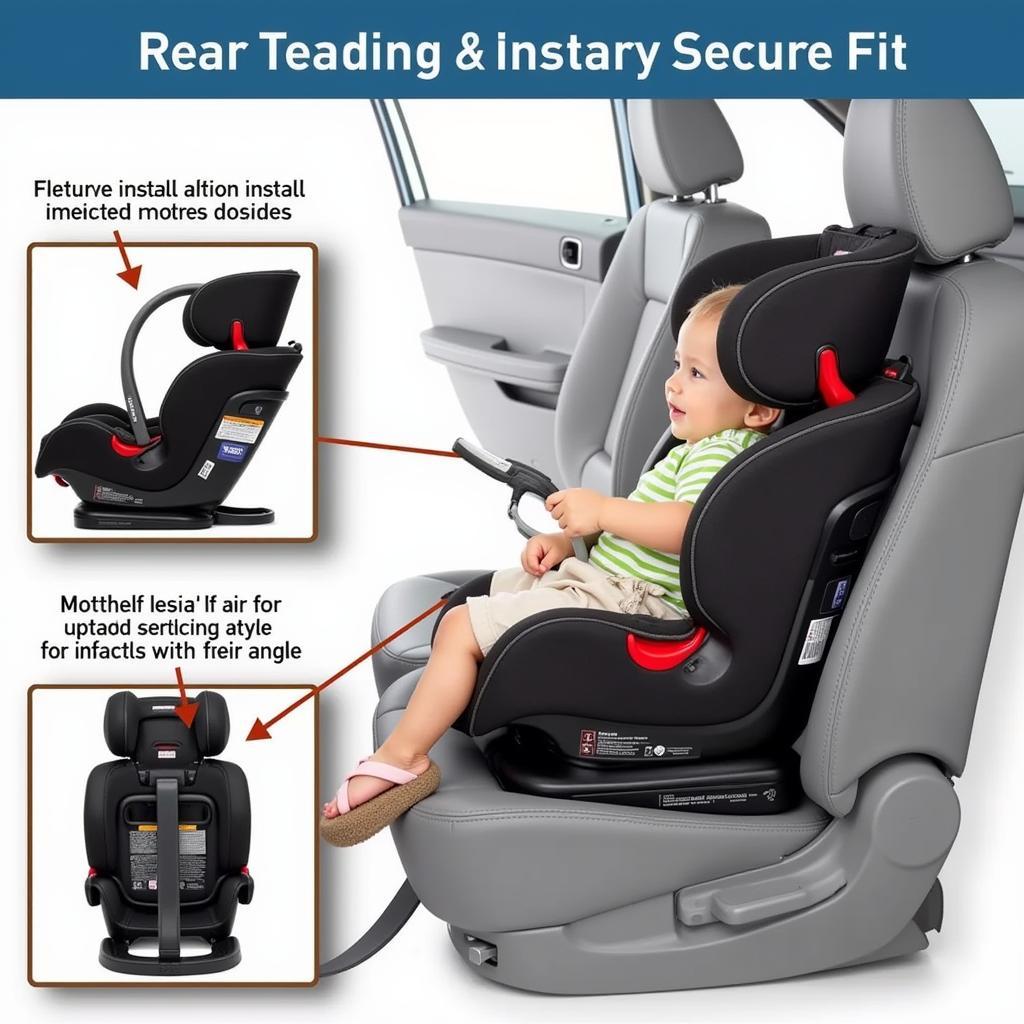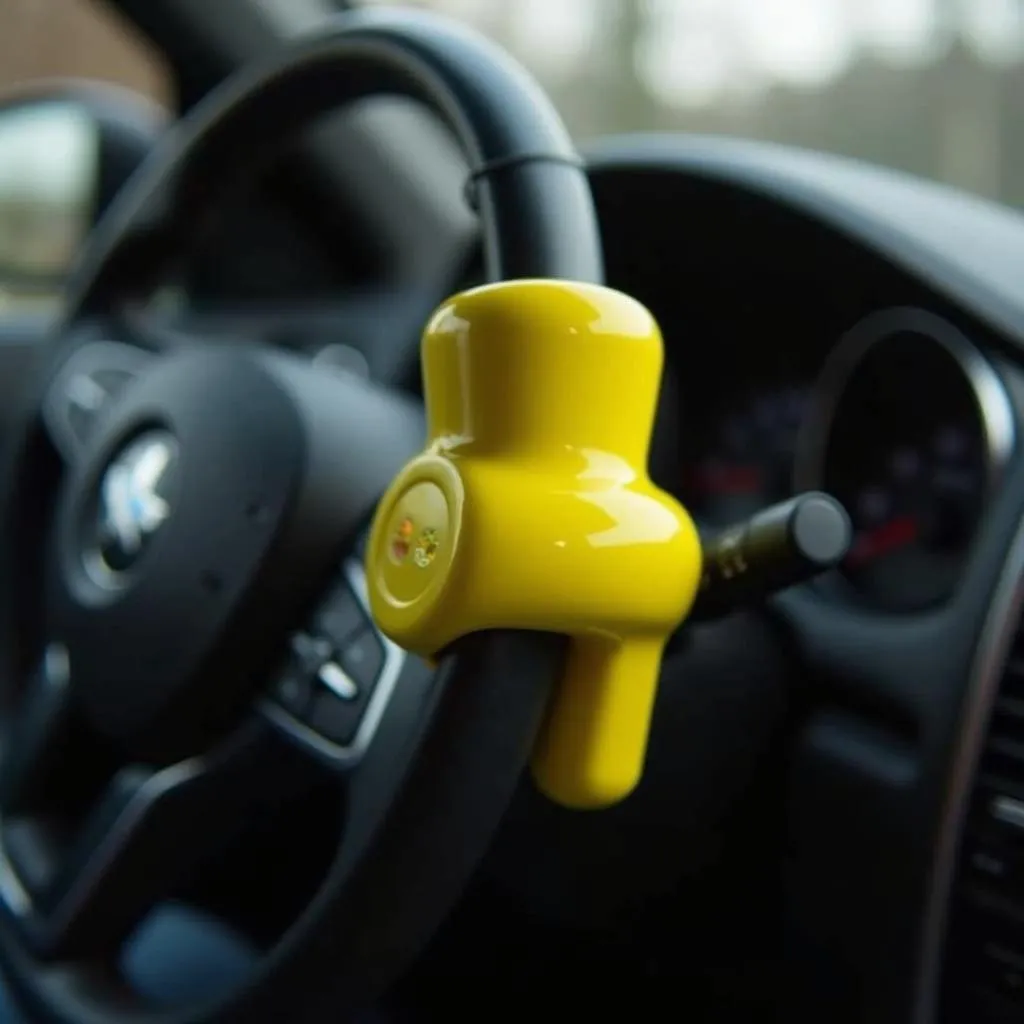The brake warning light on your dashboard is a crucial safety feature, and when it illuminates in your 2005 Volkswagen Passat, it’s essential to take notice. This light can indicate a range of issues, from minor to serious, and understanding the potential causes is the first step in getting your car safely back on the road. This comprehensive guide delves into the common reasons behind the 2005 Passat brake warning light and provides potential solutions, empowering you to address the issue confidently.
Common Causes of a 2005 Passat Brake Warning Light
Several factors can trigger the brake warning light in a 2005 Passat. While some might seem minor, it’s crucial to remember that any brake issue can compromise your safety and should be addressed promptly. Here are the most common culprits:
1. Low Brake Fluid Level
One of the most frequent reasons for the warning light is low brake fluid. As brake pads wear down, the brake fluid level in the reservoir naturally decreases. If the fluid level drops significantly, the warning light will turn on to alert you.
Solution: Check the brake fluid level in the reservoir, which is located under the hood on the driver’s side. If the level is low, carefully top it off with the correct brake fluid type, as specified in your owner’s manual. If you notice a rapid decrease in brake fluid level, it’s crucial to have a mechanic inspect the system for leaks.
2. Worn Brake Pads
Brake pads are designed to wear down over time, and when they reach a certain thickness, the brake warning light will activate. This serves as a timely reminder to replace your brake pads.
Solution: Inspect your brake pads for wear. If you’re comfortable with basic car maintenance, you can check the pads yourself. Otherwise, take your car to a mechanic or a trusted service center for inspection. If the pads are worn down to the minimum thickness or less, they need replacement.
3. Faulty Brake Pad Sensor
Many 2005 Passats are equipped with brake pad wear sensors. These sensors are small wires embedded in the brake pads. When the pads wear down, the sensor wire makes contact with the rotor, completing a circuit and triggering the warning light on your dashboard.
Solution: If your brake pad sensor is faulty, it will need to be replaced. This is a relatively straightforward job that can be done by a mechanic or a competent DIYer.
4. ABS Issues
While less common, a problem with your Anti-lock Braking System (ABS) can also trigger the brake warning light. This could be due to a malfunctioning ABS module, a faulty wheel speed sensor, or other issues within the ABS system.
Solution: Diagnosing ABS problems requires specialized tools and knowledge. If you suspect an issue with your ABS, it’s best to take your Passat to a qualified mechanic specializing in automotive electronics or a dealership for a proper diagnosis and repair.
What to Do When the Brake Warning Light Comes On
- Don’t panic: While it’s crucial to take the warning seriously, don’t panic. Pull over to a safe location when it’s safe to do so.
- Check your brake fluid: As mentioned earlier, this is often the easiest fix.
- Listen for unusual noises: Grinding or squealing when you apply the brakes could indicate severely worn pads.
- Feel your brakes: Do they feel spongy or unresponsive? This can be a sign of air in the brake lines or other serious issues.
- Seek professional help: If you’re unsure about anything or if the problem persists, take your Passat to a trusted mechanic specializing in automotive electronics or a dealership for a thorough inspection.
Expert Insights
“Many people underestimate the importance of regular brake maintenance,” says John Smith, a senior automotive technician with over 20 years of experience. “Your brakes are your car’s most important safety system. Ignoring the brake warning light can lead to costly repairs and, more importantly, compromise your safety on the road.”
Conclusion
A glowing brake warning light in your 2005 Passat should never be ignored. Addressing the issue promptly can save you time, money, and most importantly, keep you safe on the road. By understanding the common causes and their solutions, you can take the right steps to ensure your Passat’s braking system is in optimal condition. If you’re ever in doubt, seeking professional help from a qualified mechanic is always the best course of action.


